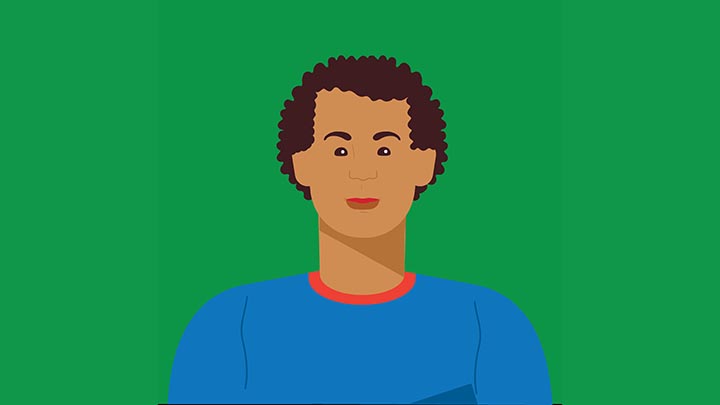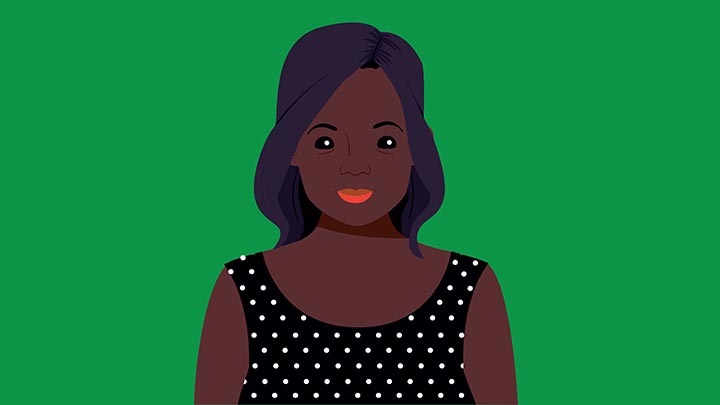Culturally-adapted Family Intervention (CaFI) is a talking therapy designed together with Black service users, their families and community members for people from African-Caribbean backgrounds experiencing psychosis.
Our study is looking at the effectiveness of this therapy and is led by The University of Manchester, with funding from the National Institute for Health Research (NIHR).
Get involved
There are several ways to get involved with the CaFI study. Whether you are a service user, a family member/carer, a community member, a health professional, a student or an academic, there is a part for you to play in this study.
Learn more at the links below or contact us to find out more.

Service users and families
Find out more about CaFI therapy and how to sign up at your local CaFI Active NHS Trust.

Professionals
Refer service users to the study and become a CaFI Advocate.

Volunteers
Volunteer as an allocated Family Support Member or research assistant.

Experts by experience
Opportunities for members of the African or Caribbean community affected by psychosis.
What does the study involve?
We are offering CaFI to 150 families of Caribbean and Sub-Saharan African origin across the north-west, Midlands, south-east and London as part of a randomised controlled trial (RCT).
We will compare their results with 150 families who do not receive CaFI to see if CaFI is at least as good as usual care. Participants randomised to receive CaFI will receive talking therapy over ten sessions, either in person or online through our CaFI Digital platform.
We will also complete questionnaires with participants surrounding their mental health at 3 time points; baseline, 3 months, and 12 months (after completion participant and their selected loved one will receive £10 at each time point). Participants will also be given the opportunity to partake in an in-depth interview about their current mental health.
You can take part in the study if you meet our eligibility criteria. You may be referred to us by your clinical team.

What is CaFI?
CaFI therapy is a hybrid model consisting of behavioural family therapy and cognitive behavioural therapy. It is delivered by two therapists: a lead therapist and another who will assist them, known as the co-therapist.
In our study, all family units randomised to receive CaFI therapy will receive 10 one-hour sessions. These are delivered face-to-face/in person, or via CaFI:Digital. This is an online platform that we have developed to increase patient choice and flexibility.
If family units opt to receive CaFI:Digital, the therapy sessions will be delivered via Microsoft Teams. Participants can also request the loan of an iPad for their online therapy session.
A breakdown of what is generally covered in the sessions is below.
Component 1: Engagement and Assessment (Sessions 1 and 2)
- Understanding the family dynamics and different roles.
- Tailoring CaFI to meet individual needs.
- Building positive relationships.
Component 2: Shared Learning (Sessions 3 and 4)
- Navigating mental services.
- Addressing power dynamics in the family and health care services.
- Challenging stigma.
- Improving knowledge about schizophrenia and related psychoses.
Component 3: Communication (Sessions 5 and 6)
- Building on existing communication skills within the family.
- Empowering participants to express their needs.
- Engaging with mental health services.
- Supporting carers and family members in representing the view and needs of service user and themselves.
Component 4: Stress Management and problem solving (Sessions 7 and 8)
- Identifying stressful situations.
- Creating goal-based coping strategies.
- Promoting positive cycles around thoughts, feelings, and behaviours.
Component 5: Staying Well and Maintaining gains (Sessions 9 and 10)
- Recovery-focused approach.
- Developing long-term plans for maintaining wellbeing.
- Spotting early warning signs.

Why is CaFI needed?
In the UK, African-Caribbean people, including those of Mixed heritage, are much more likely to be diagnosed with schizophrenia and to be sectioned under the Mental Health Act than any other ethnic group.
Delayed diagnosis and access to care also creates considerable tension, conflict, and increased burden on service users’ support networks (family members, carers, friends, children).
Getting families to understand service users’ experiences, and helping service users to understand how their behaviour affects their families, can reduce stress and, conflict.
Family Intervention (FI) is a type of talking therapy that the National Institute for Health and Care Excellence (NICE) recommends for schizophrenia and related psychoses. This is because it improves self-management and problem solving which, in turn, has the potential to prevent relapse and readmission to hospital.
However, people of Sub-Saharan African and Caribbean origin are rarely offered psychological therapies in NHS psychiatric inpatient and community services. When these talking treatments are offered, they often do not address people’s needs, experiences, and culture.
Contact us
If you would like to register your interest in getting involved with CaFI, or have any questions about the study, please contact the research team by sending us an email or completing our contact form.
- Email: cafi@gmmh.nhs.uk
- Complete our online contact form
Useful links including mental health resources can be found on the resources and publications page.
